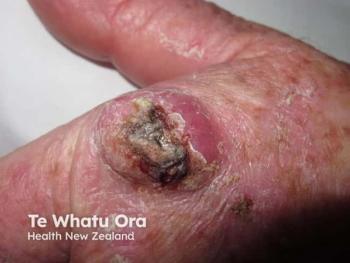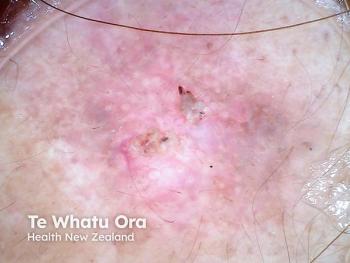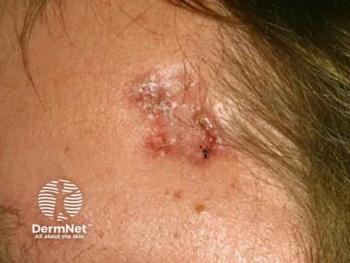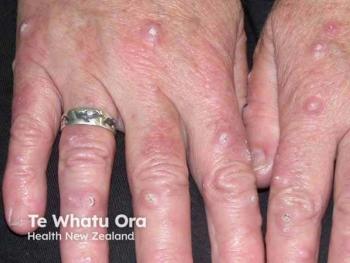
Access to Mohs Surgeon a Barrier to Referral
A survey asked dermatologists whether they had personal treated head and neck melanoma with excision, and if and when they referred patients with melanoma on the head and neck to a Mohs surgeon.
Defining good standard of care related to managing and referring patients that require Mohs micrographic surgery, as well defining best practices during surgery, and improving communication with and working with other groups from the hospital, including oncology to manage patients with aggressive tumors, are just some of the areas that were covered during the American College of Mohs Surgery Annual Meeting held in Philadelphia recently.
Data that were presented at the meeting honed in on several of these issues, particularly referral practices related to Mohs micrographic surgery. One such piece of data was based on a survey of 2,007 US general dermatologists who are enrolled in the American Academy of Dermatology, of whom 402 responded.
Spyros M. Siscol, MD, who is a dermatology resident physician at the University of Kansas Medical Center and colleagues noted that the survey asked the dermatologists whether they had personal treated head and neck melanoma with excision, and if and when they referred patients with melanoma on the head and neck to a Mohs surgeon.
Of this group, 89 reported routinely treating head and neck melanoma with excision, and this group were less likely to refer to a surgeon. About 60% of the survey respondents “routinely referred head and neck lentigo maligna/melanoma in-situ” and 32% for invasive melanoma. Of those dermatologists who did not refer, lack of access to a Mohs surgeon was the most commonly cited reason.
“Improving access to local Mohs surgeons who treat melanomas with Mohs micrographic may limit the treatment of specialty site melanomas with wide local excision, thereby potentially minimizing recurrences and complication rates,” Siscos and colleagues concluded in their abstract.
Reference
Siscos SM, Neill BC, Bar A, Latour E, Tolkachjov S. Perceptions and practice habits of general dermatologists when considering Mohs surgery for treatment of melanoma on the head and neck: a nationwide cross-sectional survey. Presented at: 2022 American College of Mohs Surgery Annual Meeting; May 12-15, 2022, Philadelphia, Pennsylvania.
Newsletter
Like what you’re reading? Subscribe to Dermatology Times for weekly updates on therapies, innovations, and real-world practice tips.











